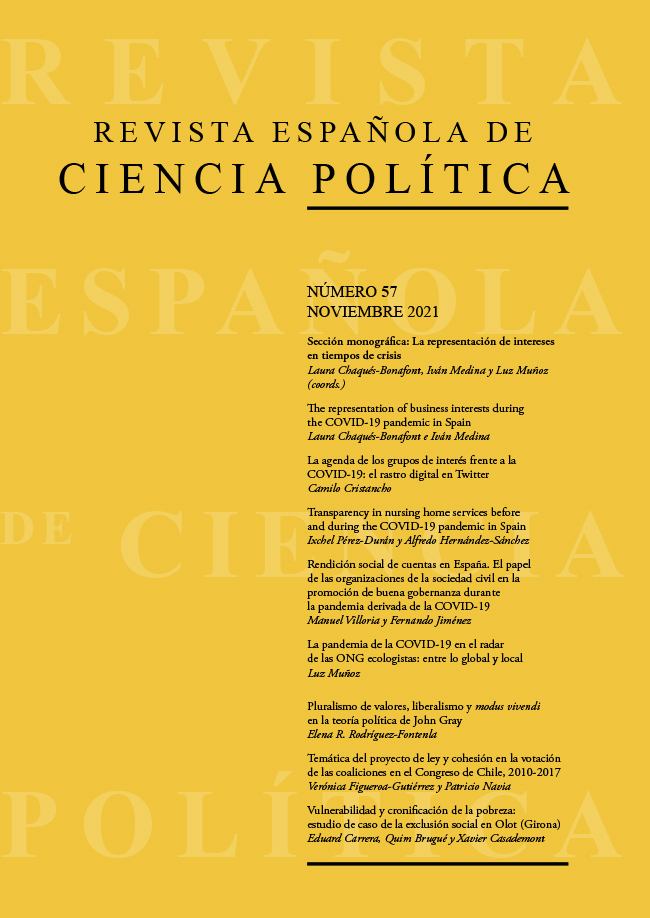Bill subject and voting cohesion by coalitions in the Chilean Congress, 2010-2017
DOI:
https://doi.org/10.21308/recp.57.07Keywords:
legislative behavior, roll call voting, cohesion, bill subject, ideology, ChileAbstract
Studies on the cohesion by legislators in roll call votes have reported an effect of being a member of the ruling coalition, the origin and relevance of the bill, the electoral cycle and other institutional design features. But the theory also links voting cohesion to the subject of the bill, an issue not sufficiently addressed on studies on party-level cohesion in Latin American presidential democracies. This article tests four hypotheses including the subject of the bill on the 6468 roll call votes in the Chamber of Deputies of Chile between 2010 and 2017 legislative years. Rightwing legislators are more cohesive in roll call votes on issues related to defense and citizen security. Contrary to expectations, leftwing legislators are not more cohesive on social issues or human rights. Ruling coalition legislators are less cohesive on budget votes. The subject of the bill seems more important for rightwing legislators than leftwing ones; although it is speculated that this might be due in Chile to the fact that the rightwing coalition is comprised by a smaller number of parties which shares more ideological homogeneity.
Downloads
Downloads
Published
How to Cite
Issue
Section
License
Copyright (c) 2021 Verónica Figueroa-Gutiérrez, Patricio Navia

This work is licensed under a Creative Commons Attribution-NonCommercial-NoDerivatives 4.0 International License.






